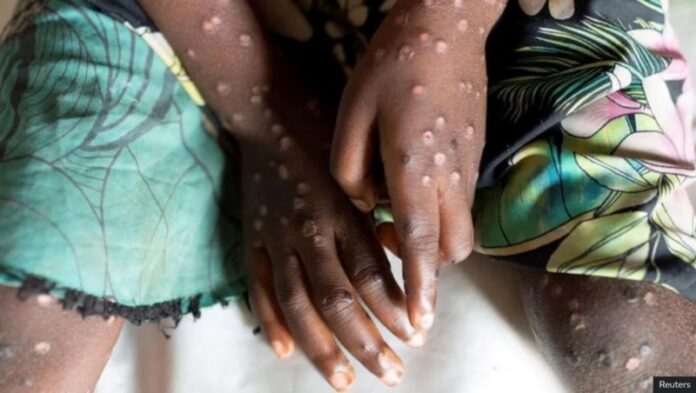Mpox is “not the new Covid”, because authorities clearly know how to control its spread, a leading World Health Organization expert has said.
Despite real concern about a new variant of the virus, and a global alert, Europe regional director Dr Hans Kluge told journalists, together we could – and must – tackle mpox.
And strong action now – including ensuring vaccines reach the areas most in need – could stop another cycle of panic and neglect.
A case of the new variant, Clade Ib, was confirmed in Sweden last week and linked to a growing outbreak in Africa.
Mpox has killed at least 450 people in the Democratic Republic of Congo, the former Zaire, in recent months, linked to Clade Ib.
There is still a lot to learn about the new variant, experts say, but it may be spreading more easily, causing more serious disease.
No Clade Ib cases have been seen in the UK – but experts warn it can spread unless international action is taken.
A different variant, Clade II, was behind the 2022 outbreak that initially affected Europe and continues to circulate in many parts of the world.
But experts know how to control mpox, regardless of the variant – through non-discriminatory public-health action and equitable access to vaccines, Dr Kluge says.
The virus, which causes a fever and rash, can be spread by skin-to-skin contact with lesions, including during sex.
Spread quickly
Dr Kluge said the risk to the general population was low.
“Are we going to go in lockdown in the WHO European region, it’s another Covid-19? The answer is clearly: ‘no’,” he said.
“Two years ago, we controlled mpox in Europe thanks to the direct engagement with the most affected communities of men who have sex with men,” Dr Kluge said.
“In 2022, mpox showed us it can spread quickly around the world.
“We can, and must, tackle mpox together – across regions and continents.
“Will we choose to put the systems in place to control and eliminate mpox globally or will we enter another cycle of panic, then neglect?”
About 100 new Clade II cases were now being reported in the European region every month, Dr Kluge added.
Travellers to affected areas in Africa have been advised to consider vaccination.
WHO spokesman Tarik Jasarevic said the WHO was not recommending the use of masks.
“We are not recommending mass vaccination. We are recommending to use vaccines in outbreak settings for the groups who are most at risk,” he added.
Source: BBC
ALSO READ:

